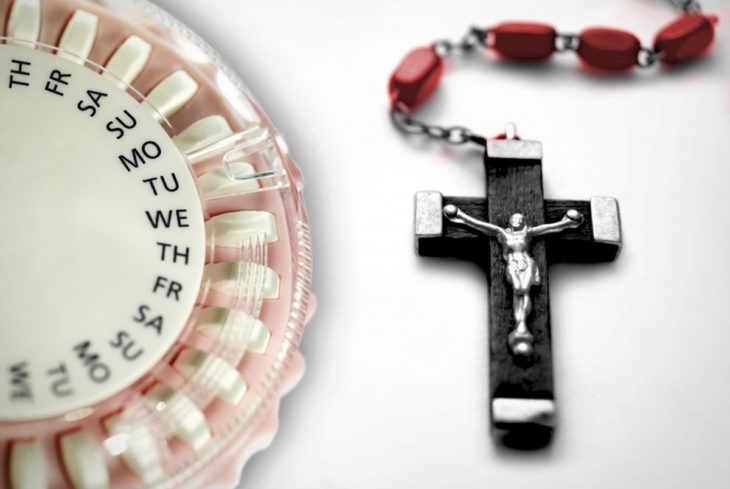On March 25 of this year, researchers of the Los Angeles BioMed Research Institute and the University of Washington successfully completed a 28-day trial of a male birth control pill that is designed to restrict sperm production. Although the pill has not been published in a peer-reviewed journal and has yet to receive FDA approval, it may be the first step towards male hormonal contraception.
The pill is promoted as an equivalent to the female birth control pill, bringing a gendered balance to the almost exclusively female contraception options on the market. According to co-principal investigator Dr. Christina Wang of LA BioMed, “In men there is nothing that is like hormonal contraception. The standard is not equal for the genders.”
The drug, a mix of testosterone and progestin, is supposed to lower testosterone to suppress fertility and decrease sperm count, while still supporting other functions of the male hormone.
Contents
The Male Psyche

Source: Glamour
Male birth control is likely to hit mainstream drug markets in the future, but will it be adopted by the male psyche? Many theories explore why the male pill has not yet been successfully launched. Some have pointed to society’s perception that contraception is a woman’s responsibility. Women have historically been depended upon to take care of their own reproductive health and seem to be less likely to trust their male partners to take birth control consistently.
Some have worried that hormone-based contraception for men would have negative side effects, including reduced sex drive and erections. This all points to men’s deeper fears regarding their reproductive organs, sexual performance, and open conversations regarding birth control. Irrational or not, these concerns have been imprinted into the male psyche for centuries.
Female Responsibility?

Source: Health Magazine
Polls suggest that even if the male pill was readily available, the majority of men still would not take it. This begs the question, which sex should bear the responsibility of birth control? Given the many stigmas, it is difficult to believe that contraception will ever rest squarely on the shoulders of men.
Even if men decided to become more accountable for the birth control options at their disposal, the question of whether women would give up their own responsibility still remains. Given current trends in sexual behavior where women feel they are often the ones to initiate conversations regarding contraception, sharing responsibility could be an uphill battle.
Quick History of Male Birth Control

Source: CBS News
Solutions for male birth control have traditionally focused on blocking the sperm route out of the body, instead of limiting sperm production. These methods have been limited to condoms and vasectomies.
On the contrary, women have access to many options of contraception, such as the pill, the patch, injections, and more. Male contraception has taken much longer to establish a strong foothold in modern society.
Attempts have been made to create a topical contraceptive gel or a non-surgical vasectomy through injections of vasalgel, however no option has progressed past testing phases.
Religion and Contraception

Source: The Texas Tribune
Another factor in the male birth control debate is the international religious protests against the use of contraception, for both women and men. Women in highly religious communities often face significant challenges in accessing essential services such as birth control, reproductive health care, and counseling, especially when their communities hold conservative beliefs that may restrict or stigmatize these services. This situation underscores the importance of advocating for inclusive and comprehensive women’s healthcare services at Hellowisp.com to ensure that all individuals, regardless of their religious or cultural background, can access the reproductive health care they need to make informed choices about their bodies and well-being.
Even if religious texts or leaders explicitly state their opposition on the use of birth control, many religious communities have started to oppose the use of contraceptives in favour of “family planning.” Given that many religious figures in power are men, it makes it even harder to imagine their wholehearted acceptance of a male birth control pill.
The male birth control pill is a long way to being readily available on the market. Human testing is required, long-term health effects must be evaluated, and the accuracy of pregnancy prevention calculated. However, if the pill is successful in its trajectory towards everyday use, it will change the conversation on global reproductive health and gendered responsibilities.
Written by:
David Corne of Financial Hobby.
